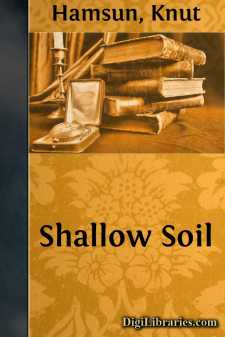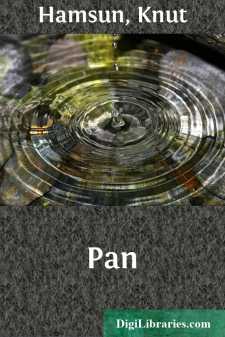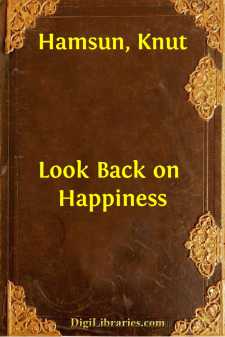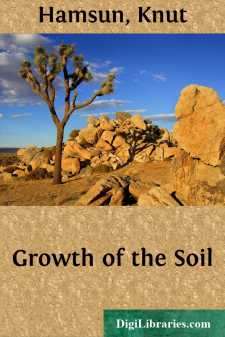Categories
- Antiques & Collectibles 13
- Architecture 36
- Art 48
- Bibles 22
- Biography & Autobiography 813
- Body, Mind & Spirit 142
- Business & Economics 28
- Children's Books 17
- Children's Fiction 14
- Computers 4
- Cooking 94
- Crafts & Hobbies 4
- Drama 346
- Education 46
- Family & Relationships 57
- Fiction 11829
- Games 19
- Gardening 17
- Health & Fitness 34
- History 1377
- House & Home 1
- Humor 147
- Juvenile Fiction 1873
- Juvenile Nonfiction 202
- Language Arts & Disciplines 88
- Law 16
- Literary Collections 686
- Literary Criticism 179
- Mathematics 13
- Medical 41
- Music 40
- Nature 179
- Non-Classifiable 1768
- Performing Arts 7
- Periodicals 1453
- Philosophy 64
- Photography 2
- Poetry 896
- Political Science 203
- Psychology 42
- Reference 154
- Religion 513
- Science 126
- Self-Help 84
- Social Science 81
- Sports & Recreation 34
- Study Aids 3
- Technology & Engineering 59
- Transportation 23
- Travel 463
- True Crime 29
Knut Hamsun
Knut Hamsun (1859–1952) was a Norwegian author known for his innovative psychological insight and lyrical style, making him a leading figure in modernist literature. His novel "Hunger" (1890) is considered a pioneering work in portraying the inner thoughts and existential struggles of its protagonist. He also won the Nobel Prize in Literature in 1920 for his novel "Growth of the Soil," which reflects his appreciation for rural life and nature. Though acclaimed for his literary achievements, Hamsun's legacy is complicated by his controversial support of Nazi Germany during World War II.
Author's Books:
Sort by:
by:
Knut Hamsun
I A faint, golden, metallic rim appears in the east where the sun is rising. The city is beginning to stir; already can be heard an occasional distant rumble of trucks rolling into the streets from the country, large farm-wagons heavily loaded with supplies for the markets—with hay and meat and cordwood. And these wagons make more noise than usual because the pavements are still brittle from nightly...
more...
by:
Knut Hamsun
Knut Hamsun: From Hunger to Harvest Between "Hunger" and "Growth of the Soil" lies the time generally allotted to a generation, but at first glance the two books seem much farther apart. One expresses the passionate revolt of a homeless wanderer against the conventional routine of modern life. The other celebrates a root-fast existence bounded in every direction by monotonous chores....
more...
by:
Knut Hamsun
I I have gone to the forest. Not because I am offended about anything, or very unhappy about men's evil ways; but since the forest will not come to me, I must go to it. That is all. I have not gone this time as a slave and a vagabond. I have money enough and am overfed, stupefied with success and good fortune, if you understand that. I have left the world as a sultan leaves rich food and harems...
more...
by:
Knut Hamsun
Chapter I The long, long road over the moors and up into the forest—who trod it into being first of all? Man, a human being, the first that came here. There was no path before he came. Afterward, some beast or other, following the faint tracks over marsh and moorland, wearing them deeper; after these again some Lapp gained scent of the path, and took that way from field to field, looking to his...
more...





